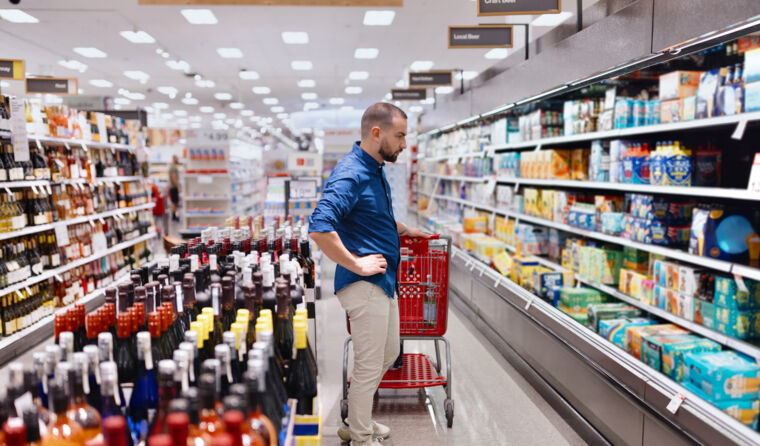Opinion
Do they have a place in reducing alcohol intake? Dr Hester Wilson says GPs can advise patients on the benefits and risks.

‘Maybe I’m being alarmist, but I think we need to make people aware that there is a risk with this,’ writes Dr Hester Wilson.
I often see patients who want to change their relationship with alcohol, and for some of them, using the low- and zero-alcohol options can be a game changer.
You may have seen these. They are almost indistinguishable from the alcoholic varieties – sold with similar packaging, branding and logos.
These products enable people to attend functions, go out with friends and have a drink but without having to have alcohol. If they choose, they can hide the fact that what they’re drinking contains zero to very little alcohol.
This means they don’t have to have conversations about why they aren’t drinking or field questions, and this is the case in my peer group of, “Oh are you pregnant?”.
Sometimes if you go out somewhere and you’re not drinking, it can be difficult to find appealing non-alcoholic options. You’re stuck with water, soda if you’re lucky, soft drinks, or cheap orange juice that tastes of pith and peel. That might be appealing to some, but not to me, but there’s little other option.
A non-alcohol or low-alcohol option, for example beer, can be a nice way to feel like you’re having an adult drink rather than sitting at the kiddie’s table.
There is however another side to this.
First, for some of my patients with a history of alcohol dependence, seeing an object that looks like a beer, has the labelling of their favourite beer, tastes and smells like beer is a real trigger. It can send them backdown that slippery slope they’ve been working so hard to climb – lapsing back to alcohol use.
This can be devastating if you’re someone who is trying to shift that, trying not to drink. If you know you don’t want to drink and are trying to learn how to have life without alcohol, if you know that drinking gets you into trouble you really don’t want triggers like this.
So, while it’s a useful approach for some its not for everyone. We need to counsel our patients about the benefits and risks of this option.
The other important issue – and it’s one that I’ve only just started thinking about recently – is thinking about where these products are sold.
The other day, I was in the supermarket wandering through the aisles past the soft drink section, and there they were. A growing number of low- or zero-alcohol products: Heineken, Carlton, etc beers, and some wines as well.
Kids go to the supermarket with their parents, and they see those brands. This positioning creates brand awareness.
When I buy low- or zero-alcohol beers from the supermarket, take it home and drink it in front of my kids, I am creating brand awareness. And connect this with good times, with celebration.
What does this do for our kids? These pervasive, subliminal messages may build another generation of people who will use their products. Is this a problem?
Maybe I’m being alarmist, but I think we need to make people aware that there is a risk with this.
Brand awareness may build an awareness of a particular drink, awareness of brand, and as you grow up, you move from the low- and zero-alcohol options to the alcohol options. It continues the ubiquitous connections we have in our communities with the centrality of alcohol and creates another generation of drinkers.
Maybe this isn’t an issue. Alcohol is legal and a big part of our culture. And it is toxic. We know it increases risk of a number of cancers – stomach, bowel, breast, liver, head and neck.
It is toxic to the unborn foetus, increases risk of diabetes, weight gain, cardiovascular disease, dementia, and causes liver cirrhosis. It has acute harms and leads to alcohol dependence for some.
I wonder if the low- and zero alcohol products need to be limited for sale only in bottle shops? Would this limit their use for everyone and make the potential benefits less likely? It could certainly help my patients managing their alcohol dependence who avoid bottle shops anyway.
For us as GPs, we need to think about how we nuance conversations about the use of low- and zero-alcohol products, not only with our patients, but with our families, friends and our communities as well.
They do have a place in helping our communities decrease alcohol intake, but do they have to look so much like alcohol?
Dr Hester Wilson is Chair of RACGP Specific Interests Addiction Medicine.
Log in below to join the conversation.
alcohol alcohol dependence alcohol-free drinks harm reduction low-alcohol
newsGP weekly poll
How often do your patients inquire about DNA screening?

